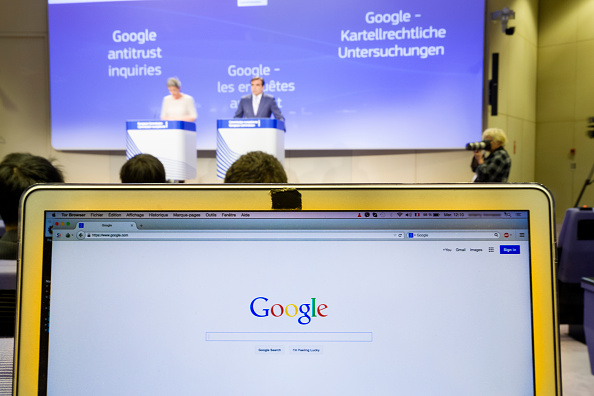The takeaways
- Google, alongside Facebook and Twitter, is under the microscope of the latest antitrust push in the United States.
- With state and federal-level investigations plus the EARN It Act looming, Big Tech is facing increasing legal challenges that could change its future.
- Google also announced that its “Enabling Dishonest Behavior” policy update, which regulates “Products or services that help users to mislead others,” will be enforced from August 11.
What happened?
Politico reported yesterday that California began a new investigation into Google – based in California’s Mountain View – for antitrust violations. The search engine and advertising giant already faces Congress’s scrutiny with a Department of Justice lawsuit expected this summer. This comes after 48 state attorneys general, led by Texas, launched a joint probe into Google’s advertising technology dominance last September.
EU regulators are simultaneously scrutinizing Google’s market practices via its acquisition of Fitbit. Google has until July 13 to offer concessions, with the European Commission making a final decision by July 20. If the company fails to meet its deadline, the EU will launch a four-month long investigation after a preliminary review.
Meanwhile, Google released an advertising policy update today, declaring an ban on advertizing promoting unauthorized consumer tracking. The ban also covers spyware and surveillance technology under an umbrella of preventing nonconsensual monitoring. What’s notable is the breadth of products it reaches across, from devices that record browser, text and call histories to GPS, cameras, audio recorders and nanny cams.
Not for the first time
A Californian antitrust investigation into Google is a familiar story – the state previously joined one in 2011. However, its joint inquisition with Texas, New York, Ohio, Oklahoma and the Federal Trade Commission came to naught and was settled with Google in 2013.
Could history repeat itself? That could depend on whether regulations and fair market practices have been provably breached. Recent history, however, tells us that even at the federal level, Big Tech tends to resume business as usual. Even grassroots movements like #StopHateforProfit’s Facebook boycott evoke a PR response instead of a regulatory one (for now).
Law vs. tech
If anything, tech giants seem more likely to review their policies where privacy and child safety are concerned. Google’s new update exempts ads promoting private investigation services and products for parents to track their underage children.
Still, with an antitrust battle pending this summer for Twitter, Google and Facebook, Big Tech’s latitude seems progressively questionable. The bipartisan EARN It Act, however, with its potential implications for internet privacy and tech’s legal protections, could curtail the likes of Google’s impunities entirely.
For a breakdown of tech’s antitrust allies, see this Axios article.









